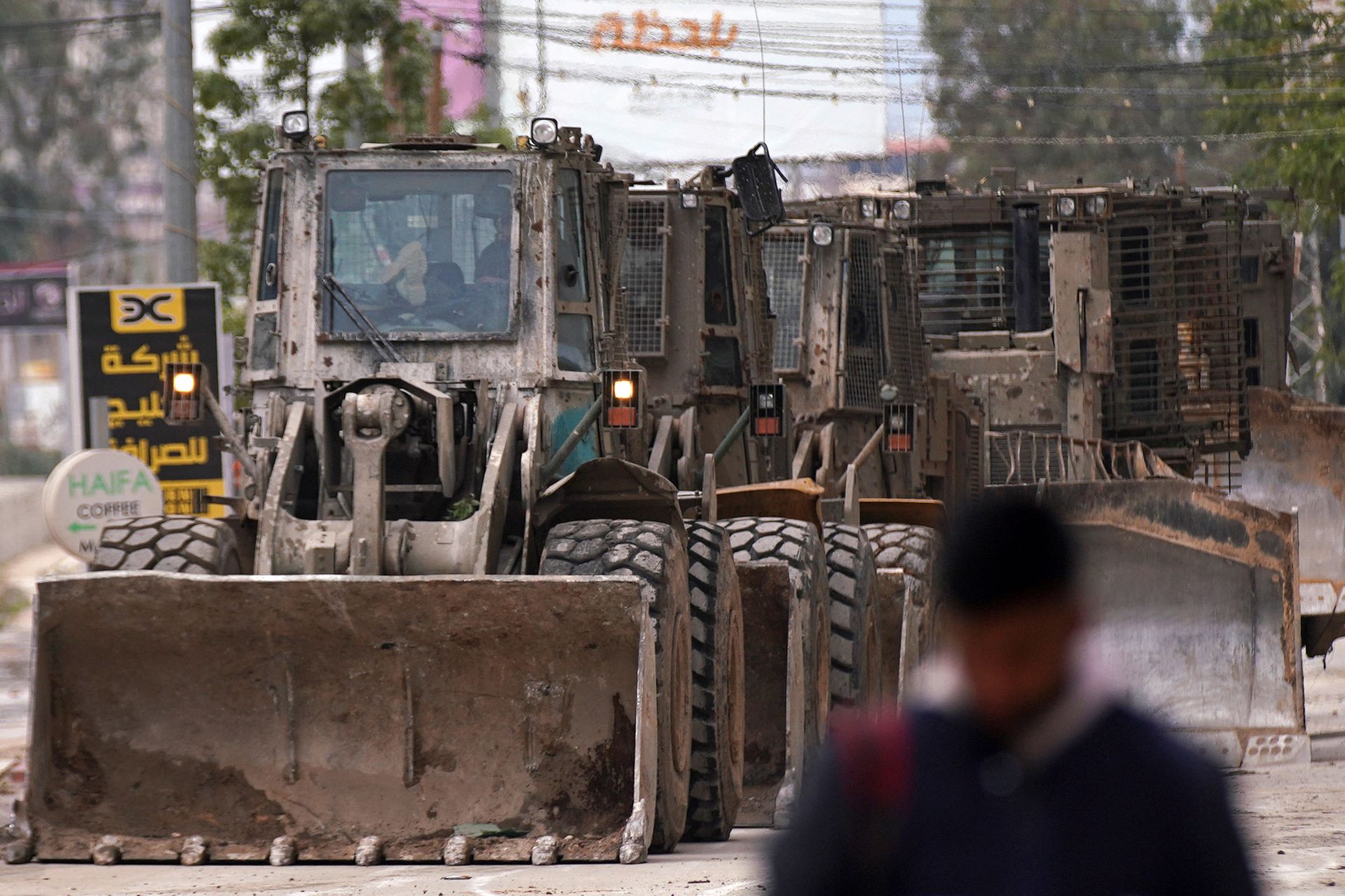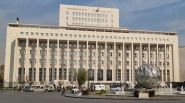- Home
- Middle East
- Heavy Gunfire And Explosions On The Second Day Of The Israeli Operation In The West Bank

©- / AFP
The town of Jenin in the occupied West Bank was under heavy fire and explosions on Wednesday, the second day of Israel's ‘Iron Wall’ operation, launched just after the start of the truce in Gaza between Israel and Hamas.
‘The situation is very difficult. The occupying army has bulldozed all the roads leading to Jenin camp and the hospital’, Kamal Abu Rub, the town's governor, told AFP.
‘There is shooting and explosions. A plane is flying over the area’, he added, referring to numerous arrests.
The day after the inauguration of the new American president, Donald Trump, whose unconditional support the Israeli government is hoping for, the army ‘launched an anti-terrorist operation’ in this town in the north of the West Bank, a territory occupied by Israel since 1967.
The latest toll on Tuesday evening was ten dead and 35 injured, according to the Palestinian Ministry of Health.
The Israeli army said it had ‘struck more than ten terrorists’ during the operation. ‘Air strikes on terrorist infrastructures were carried out and numerous explosives planted on the roads (...) were dismantled’.
According to the governor, some 200 people were held inside Jenin hospital at the start of the day.
This was a temporary security measure, to enable explosives placed outside to be defused, said Nadav Shoshani, a spokesman for the Israeli army, at a press briefing.
He did not say whether the measure had been lifted. ‘Any civilian wishing to leave the city can do so, but there are no instructions to evacuate,’ he said.
An AFP journalist noted that a video camera had been set up on a main road in Jenin, with dozens of residents walking past. Some of them were being questioned by Israeli forces.
Defence Minister Israel Katz justified the operation in the Jenin refugee camp as ‘a change in the army's approach to security’ in the West Bank.
‘We will strike decisively at the tentacles of the octopus until they are severed’, he insisted, insisting on the need not to let these structures reappear, “a key lesson learned from the repeated raid tactics used in Gaza”.
On Wednesday, France expressed ‘its deep concern about the increase in security tensions’ in the West Bank and called on ‘the Israeli authorities to show restraint’, according to a statement from the Ministry of Foreign Affairs.
Jenin, and in particular its refugee camp, is regularly the target of Israeli military operations against armed groups, including Hamas, Islamic Jihad and other movements more or less linked to them.
In recent months, operations have followed one another, leaving neighbourhoods cut off from one another, in particular because the asphalt of certain roads has been ripped up by Israeli bulldozers. The army says it uses these machines to protect itself from explosive devices.
On 14 January, six Palestinians were killed in Jenin by an Israeli air force strike.
At the time, General Anouar Rajab, spokesman for the Palestinian Preventive Security, denounced the operation as thwarting ‘all the efforts made (by his services) to maintain security and order and restore normal life’.
On Tuesday, Prime Minister Benjamin Netanyahu placed the operation in the context of a broader strategy aimed at Iran, ‘wherever it sends its weapons - to Gaza, Lebanon, Syria, Yemen’ and the West Bank.
UN Secretary General Antonio Guterres called on Israel ‘to exercise maximum restraint and to use lethal force only when absolutely unavoidable to protect lives’.
Violence in the West Bank has exploded since the start of the war in the Gaza Strip, which began on 7 October 2023 with an unprecedented attack by the Palestinian Islamist movement Hamas on southern Israel, and which has been the subject of a fragile truce since Sunday.
Since then, at least 848 Palestinians have been killed in the West Bank by the Israeli army or by settlers, according to the Palestinian Ministry of Health.
At the same time, at least 29 Israelis, including soldiers, have died in Palestinian attacks or military operations, according to Israel.
With AFP.
Read more



Comments